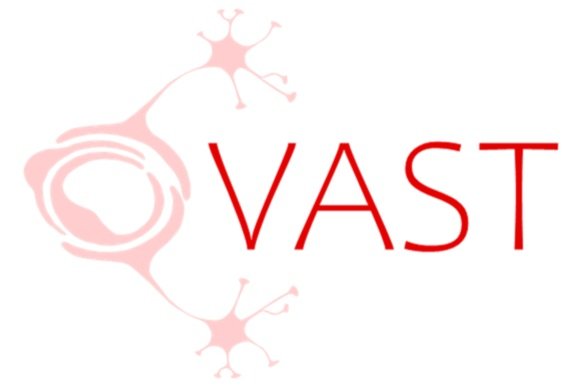Cognitive Research From a Different Perspective
By: Faye Arellano
One effective way to learn is to examine things from multiple perspectives. As a Psychology student, I am familiar with cognitive impairments. Still, I have not studied their vascular mechanisms. Therefore, I am so fortunate to have been given the opportunity to do a research project under VAST's funding this summer. I gained a new perspective on cognitive impairment by studying it from the vascular point of view.
My research focused on how cerebral blood flow and how it affects Alzheimer's Disease. I assessed amyloid beta in vivo in brain capillaries as previous research used post-mortem tissue, which did not provide evidence of causality.
Cerebral blood flow ensures the brain has the nutrients it needs to function. However, early signs of Alzheimer's Disease show a significant decrease in cerebral blood flow. Furthermore, amyloid beta plays a role in this decrease. Amyloid beta is a toxic protein that is known as a cause of the development of Alzheimer's Disease. It has been found that cerebral blood flow and amyloid beta are related through brain capillaries. Brain capillaries are constricted by 30% by the toxic amyloid beta, resulting in reduced cerebral blood flow (Notley et al., 2019).
I conducted this project under the supervision of Drs. Nguyen and Gordon. I also collaborated with Dr. Milène Vandal to analyze her data. Milène first demonstrated the experiment to help me understand the collection process behind what I was analyzing. I witnessed the surgery on the experimental mice and the imaging techniques used to capture brain blood vessels. In psychology, research is often done with human participants. Therefore, I found learning about a different research method fascinating. Moreover, the technique I focused on was linescan image analysis for red blood cells.
Linescan image analysis presents each red blood cell as individual lines in the image. My job was to calculate the speed of red blood cells to indirectly measure the diameter of the capillaries. This is because the diameter of the capillaries affects how easily the red blood cells can go through the vessel.
Psychology and vascular research both depend on familiarity with various analysis softwares. During my research project, I became acquainted with three softwares that helped me conduct my analysis: MATLAB, Microsoft Excel, and GraphPad Prism. With Milène's guidance, I learned to run commands, create formulas to generate results, and produce visual representations of my results through graphs.
Overall, I have learned numerous skills during my summer project that I will bring forward with me in my future as a researcher. Understanding cognitive impairments from the vascular perspective broadened my knowledge and increased my interest in them . In the hope of one day finding a cure for Alzheimer's Disease, I am happy that my research contributes to our understanding of the relationship between the vascular system and Alzheimer's disease.
———————————————————————————-
Faye Arellano is a 4th year Psychology student at the University of Calgary. This summer, she was able to conduct research in Drs. Minh Dang Nguyen and Grant Gordon’s labs at the Hotchkiss Brain Institute. Her project looked at cerebrovascular dysfunction in Alzheimer’s disease. As part of extracurriculars, she's involved in the Mental Health Awareness club on campus to promote conversations about mental health to the student body.
